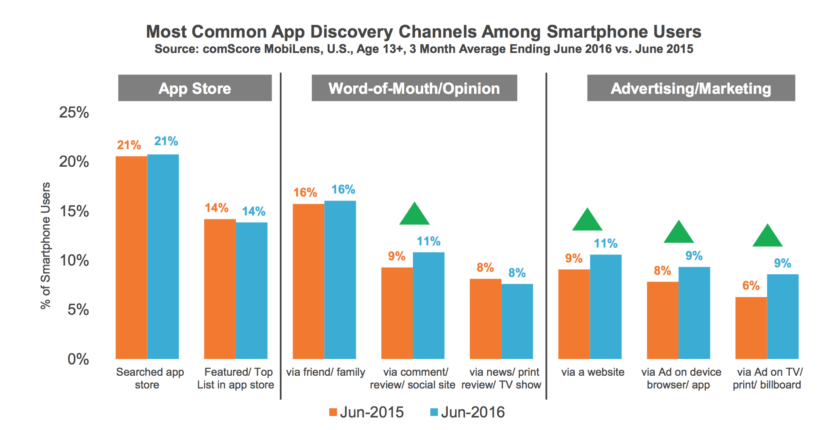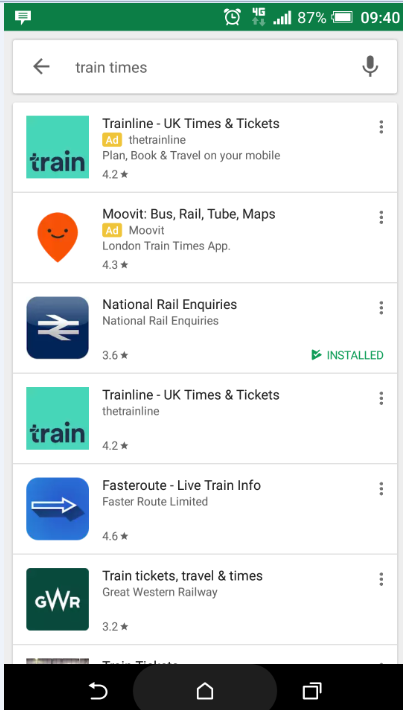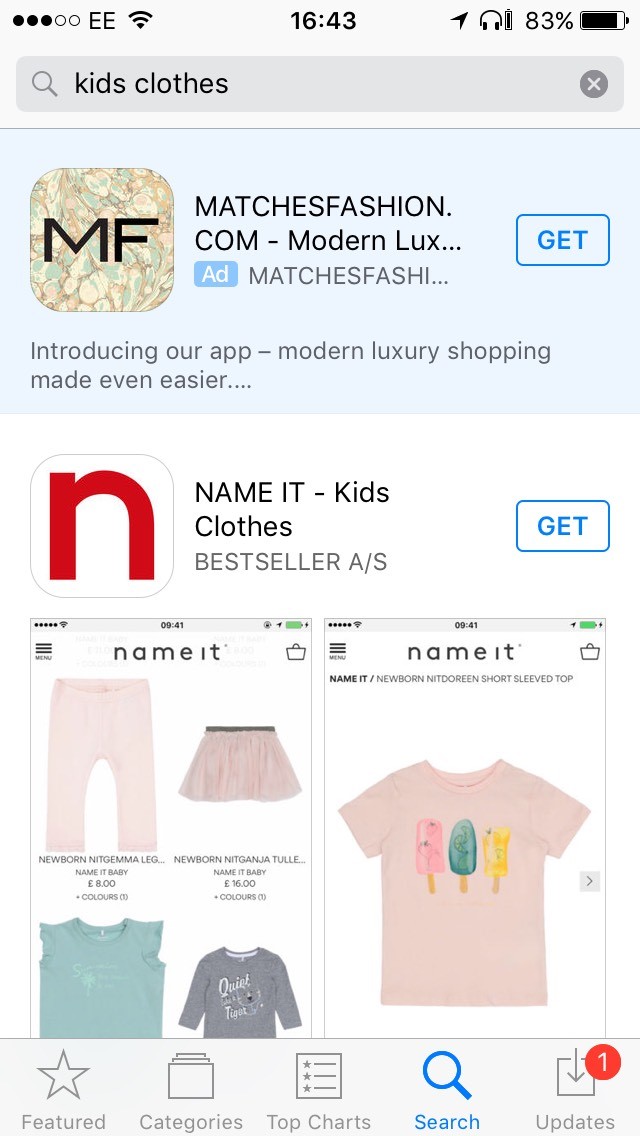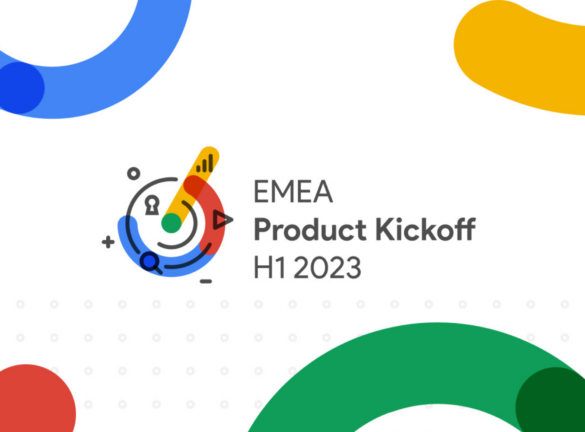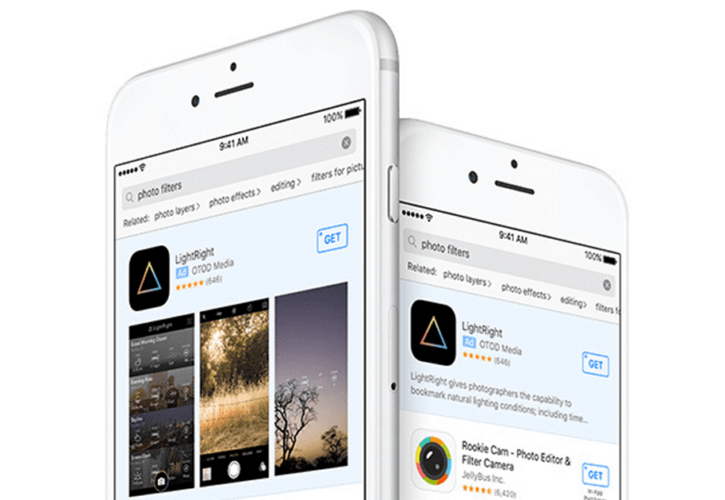
Jumping on the Digital Bandwagon: Apple Search Ads
Anyone who works in digital has doubtlessly heard the expression ‘year of mobile’ on countless occasions. Lately however, there here have been murmurs of how we’re beyond the year of mobile and now it goes without saying that mobile-first strategy is key in any digital campaign. With the rise of mobile has inevitably come the rise of mobile apps and in turn there has naturally been a growing demand of how we can advertise apps, aside from Google AdWords.
With millions of apps now in the app store advertisers have generally focused on using AdWords, Paid Social platforms and CPI media partners to drive consumers to install their app over a competitor’s app. But what about the people who by-pass these advertising platforms and are directly searching on the app store for something that meets their needs? According to comScore, the app store search is the most prevalent way apps are discovered so surely this should be factored into any mobile digital campaign.
After running search ads in the US since October 2016, Apple have recently launched Apple Search Ads in the UK. These work on the same premise as Google AdWords app campaigns whereby you can pay to place your app ad above the organic listings.
Aside from the slight changes in terminology, cost-per-tap instead of cost-per-click, and a simplified interface, it operates on a similar bidding model to that of Adwords.
With the increased competition across Google, Facebook and Twitter – as well as ongoing concerns around the quality and legitimately of any programmatic buys – inevitably CPAs have risen. Apple Search Ads boast of CPAs below $1 and the inability for one advertiser constantly dominate the search results, regardless of how much they’re willing to spend. They have also claimed conversion rates of over 50%. This seems impressively high but it does make sense – if we assume people on the app store are ready to, and looking to download an app then Apple Search Ads are helping advertisers place their app in front of consumers right when they’re ready to convert.
From running Apple Search Ads in the UK since their launch on April 25th initial results support these claims from Apple. For low investment, we’ve achieved 126 app downloads at an impressive CPA of £0.22, this is undoubtedly incomparable to the equivalent CPAs we see on AdWords or Facebook.
Our experiences from this new paid advertising however hasn’t been completely rosy. Keywords are automatically set to broad match and once they are set live, cannot be changed. Aside from my Dad wanting to download Skype on his phone and the top listing being an Apple Search Ad for a questionable dating app (and in turn asking me if this was my doing), being an infrequent user of the app store myself, unfortunately I’ve had similar, frustrating experiences. It seems that the interface will show your ads for any singular keywords in the whole keyword, mirroring the broad match type in AdWords. In the below shot I’m being served an ad for an app that only sells men and women’s clothes, despite me specifically searching for ‘kids clothes’.
This is an ever-important reminder to all paid media advertisers. Costs and volume may be smaller than other digital channels but you should never neglect best practices and basic tasks. Carrying out search query reports, especially in the early days of launching a new campaign, are crucial. In most cases we are looking to show consumers an ad or app relevant to what they’re looking for. Irrelevant or controversial ads can create a distasteful relationship between consumers and the branded ad they’re being shown, and more than anything, especially with smaller advertising space such as the app store, they are a nuisance.
The enormous success of Adwords is down to the strategy of building a useful tool first, and then monetising without detracting from the usefulness of the tool. Apple have been very clear with the new launch of this new advertising platform that they want relevance to be taken into higher regard than bid alone but they need to be careful to serve relevant and useful ads for keywords by factoring quality into the equation to avoid risking users going elsewhere (Google!) for their mobile app experiences.



